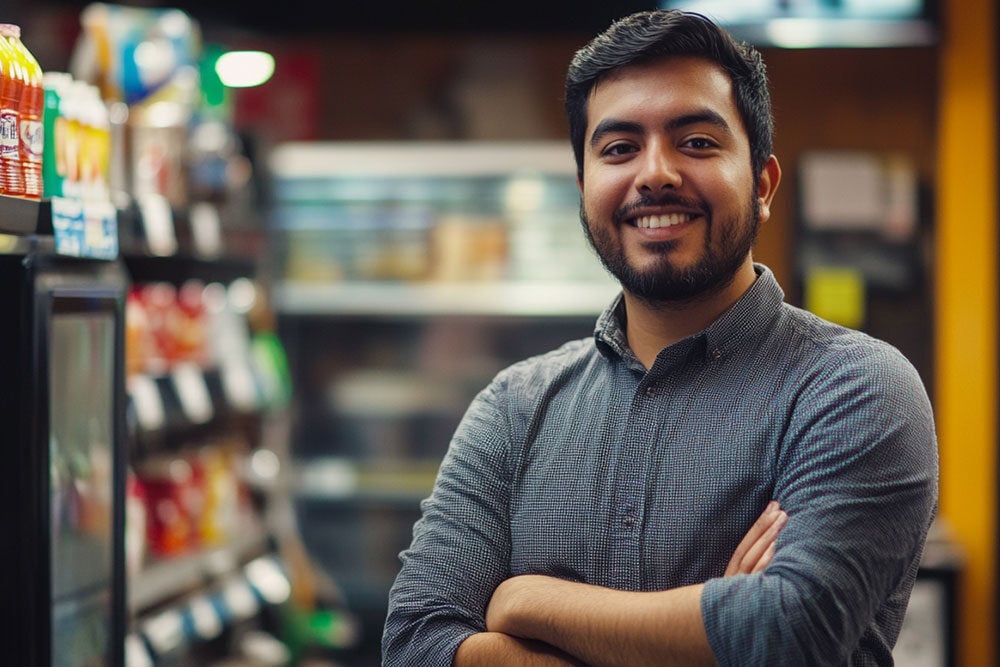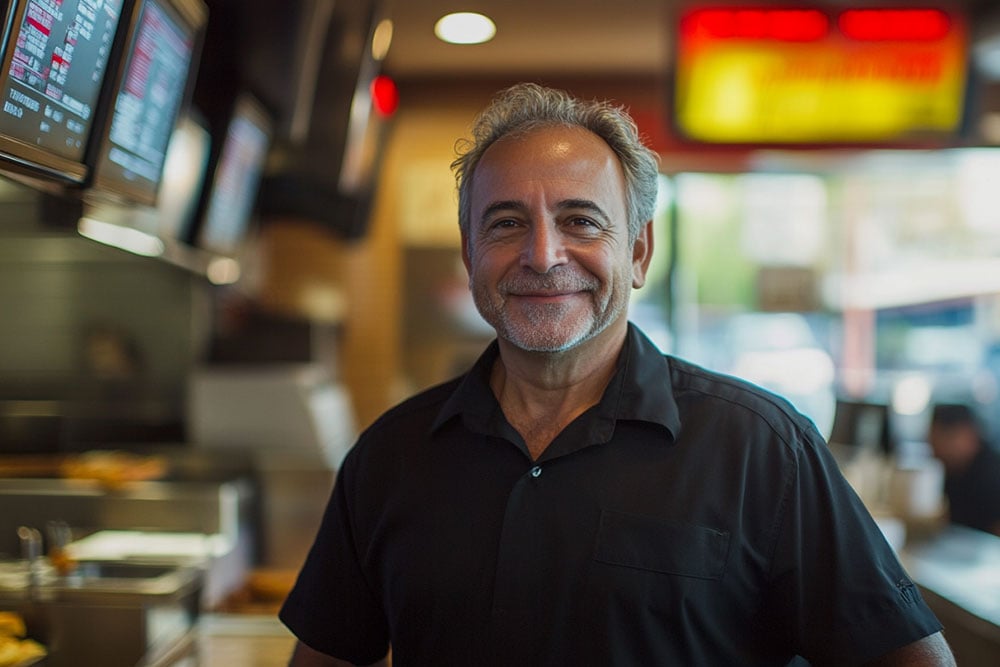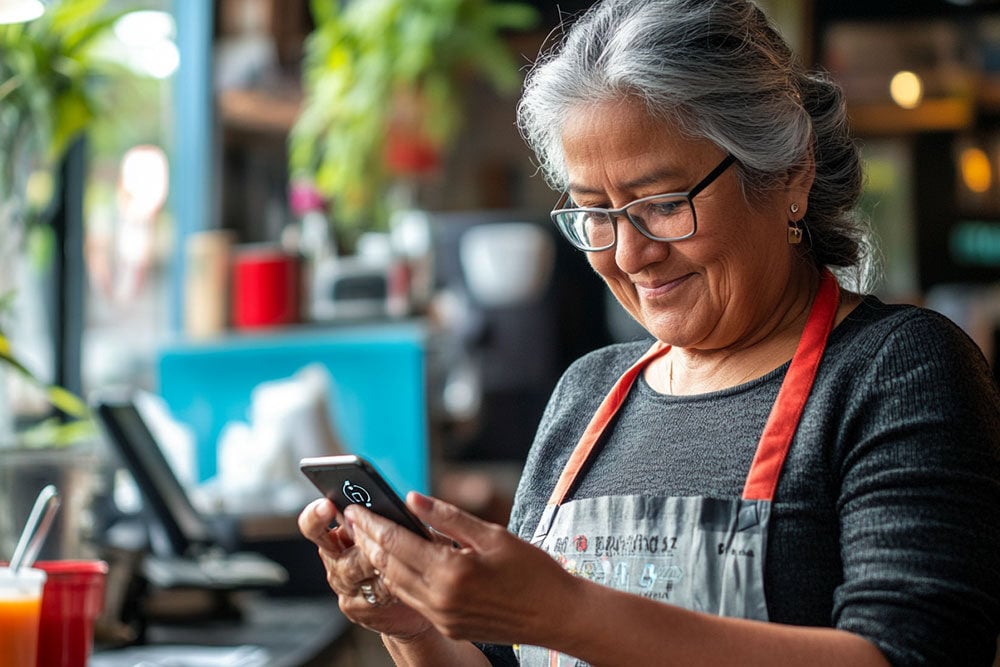INSIGHTS
Getting More Out Of Pulsa

- Insights
- Maximizing Beverage Promotions: The Role of CO2 Tank Monitoring in QSR and Convenience Store Success
- 4 min read
Maximizing Beverage Promotions: The Role of CO2 Tank Monitoring in QSR and Convenience Store Success
Quick-service restaurants and convenience stores frequently employ beverage promotions to attract customers and boost sales. While these promotions effectively increase foot traffic and revenue, they also place significant demands on beverage dispensing systems, particularly CO2 tanks.
Advanced CO2 tank monitoring is key in maintaining drink quality, keeping guests satisfied, and running operations smoothly. It’s a strategic move that protects the revenue tied to every drink poured during high-demand periods. If the CO2 runs out or drops too low, the impact is immediate: flat drinks, unhappy customers, wasted product, and lost sales.
The Impact of Beverage Promotions on Traffic and Sales
Beverage promotions have long been a staple in the QSR industry. For instance, McDonald's introduced the "$1 Any Size Drink" as a summertime promotion in 2008 to drive traffic and compete with other fast-food chains. This strategy capitalizes on the high-profit margins of soft drinks, which can be up to 90%, with each beverage costing the company between 5 and 20 cents.
McDonald's attracts customers seeking value and encourages additional food purchases by offering drinks at a low price point, increasing the average transaction value.
Other QSRs have implemented similar strategies. For example, Dunkin' introduced a $5 meal deal with two Wake-Up Wrap sandwiches and a medium coffee, aiming to draw in customers who might also purchase additional items. These promotions are designed to boost traffic during specific periods, leveraging the appeal of discounted beverages to enhance overall sales.
Convenience stores are also recognizing the value of beverage promotions. According to a report by CSP Daily News, cold dispensed beverages accounted for 44% of sales in 2024, up 4 points from 2023. This indicates a growing consumer preference for cold beverages, prompting c-stores to offer promotions that cater to this demand.
Protect profits: High-demand promos place high demand on inventory and equipment
While effective in driving sales, these promotions can strain beverage dispensing systems. A surge in drink orders increases the demand for carbonated beverages, placing a heavier load on CO2 tanks.
Traditional analog gauges on CO2 tanks often get stuck and are unreliable; they also don’t have the capability to provide timely alerts before levels become critically low. When staff notice flat drinks or diminished carbonation, the establishment may face customer dissatisfaction, wasted syrup, lost sales, and a damaged reputation.
Moreover, CO2 leaks pose safety risks. CO2 is an inert gas found naturally in air, but it can be hazardous at concentrations above 5%. Proper monitoring systems are essential to alert workers to CO2 emissions or leaks, improving worker and community safety.
The Necessity of Remote CO2 Tank Monitoring for QSRs
Implementing remote CO2 tank monitoring systems is crucial for QSRs and c-stores, especially during high-demand promotions. These systems offer real-time visibility into CO2 levels, usage rates, and refill needs. Key benefits include:
- Visibility: Monitor tanks across all stores in one dashboard and temperature monitoring for your coolers and refrigeration.
- Instant Alerts: Receive notifications before CO2 levels drop too low, allowing for proactive refilling and preventing service interruptions.
- Operational Efficiency: Monitor multiple locations remotely, reducing the need for manual checks and enabling staff to focus on customer service.
- Waste Reduction: Prevent CO2 shortages that can lead to flat drinks and wasted syrup, minimizing product loss and maximizing profitability.
- Safety Compliance: Ensure adherence to safety standards by monitoring potential CO2 leaks and protecting staff and customers.
According to QSR Web, telemetry can help keep track of soda machine needs. This way, QSRs can adequately maintain CO2 levels to prevent service disruptions.
Case Study: Implementing CO2 Monitoring During Promotions
Consider a scenario where a QSR chain launches a nationwide "$1 Any Size Drink" promotion during the summer months. Anticipating increased beverage sales, the chain invests in remote CO2 monitoring systems across all locations.
Throughout the promotion, managers receive real-time data on CO2 usage, allowing them to schedule timely refills and address any anomalies promptly. As a result, the chain experiences no service interruptions related to beverage dispensing, maintains high customer satisfaction scores, and maximizes the profitability of the promotion.
Having smart tech on your tanks is like having insurance. You can set it and forget it, only getting alerts when attention is needed.
Convenience Stores: An Emerging Player in Foodservice
Convenience stores are increasingly becoming key players in the food and beverage industry. With consumers seeking quick and accessible meal options, c-stores have expanded their food service offerings to include fresh deli sandwiches, build-your-own burgers, and made-to-order meals. This evolution positions them to compete directly with QSRs.
Beverage sales are a significant component of this strategy. Cold-dispensed beverages have seen increased demand as consumers seek options that offer high levels of refreshment and functional benefits like energy. As the demand for convenience and personalization rises, a greater emphasis is placed on offering customizable cold beverages.
The Role of CO2 Monitoring in Convenience Stores
Maintaining consistent drink quality is necessary for c-stores expanding their beverage programs. Implementing remote CO2 tank monitoring offers several advantages:
- Prevent Downtime: A steady supply of CO2 helps keep the fountain drinks flowing and customers satisfied. Remote monitoring enables timely alerts before CO2 levels dip too low, helping avoid costly disruptions.
- Visibility: Monitor tanks across all stores in one dashboard and temperature monitoring for your coolers and refrigeration. Manage and troubleshoot remotely, reducing the need for manual checks and enabling staff to focus on customer service.
- Reduce Costs and Waste: C-stores can minimize product loss and maximize profitability by preventing CO2 shortages that lead to flat drinks and wasted syrup.
- Instant Alerts: Receive notifications before CO2 levels drop too low, allowing for proactive refilling and preventing service interruptions.
Beverage promotions are a proven strategy for increasing traffic and sales in the QSR and c-store markets. However, the operational demands they place on beverage systems necessitate proactive management of CO2 supply.
Implementing remote CO2 tank monitoring is central to delivering consistent, high-quality beverages that meet customer expectations. QSRs can support the success of their promotions, safeguard their reputation, and enhance overall operational efficiency by adopting Pulsa CO2 Guard technology.
Set yourself up for long-term savings and a better customer experience by making this small investment. Don’t let CO2 outages or inefficient deliveries hurt your business.
👉 Book a Demo Today to see how simple it can be to build resilience where it matters most—your bottom line.




